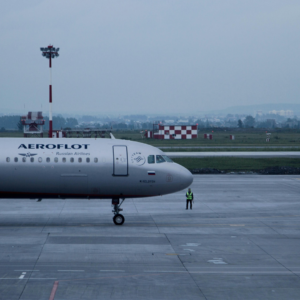University Politehnica of Bucharest, 313 Splaiul Independenței,
Bucharest, 060042, Romania, Email: kuldeepkumar851004@gmail.com
Abstract
The purpose of this paper is to see how the travel and tourism industry is changing and its development in the world. Travel and tourism industry is one of the world’s greatest industrial sectors. It drives economic growth, creates jobs, improves social development and promotes peace.
Hundreds of millions of people around the world are dependent on the sector for their employment. In some island economies, travel and tourism industry is not just the biggest employer; it is effectively the only employer. The role is to contribute to the creation of sustainable economies.

Hundreds of millions of people around the world are dependent on the
sector for their employment. In some island economies, travel and tourism
industry is not just the biggest employer; it is effectively the only employer. The
role is to contribute to the creation of sustainable economies.
Travel and tourism industry is a diverse sector consisting of millions of
companies and employers, from the biggest global travel brands to the
smallest tour operators or hostel owners. Together, we form a formidable force
with a voice to be heard at the highest levels of society and government.

range of consumer goods and services, a demand that stimulates the manufacturing and
service sectors, leading to an increase in economic activity and consumption,
independent of the normal evolution of market trends. As a consequence, this increase
in tourism consumption, caused by massive seasonal movements of the population
towards certain destinations of tourist interest and increasing the number of visitors, is
favourable to the complex development of the economy of some tourist areas and of
the economic ensemble of the countries which are developing their tourism industry.
In other words, in line with the increase in the demand for tourist services, a
distinct offer of services has gradually developed, whose volume and structures
imposed the organization and continuous improvement of an economic and
organizational program able to guide the services provided by tourists. According to
the steps, a tourist travels from the permanent residence to the destination and back,
e.g. there is a complex of activities designed to meet the various consumption needs.
The growing volume and complexity of tourism services have generated the
development of a real tourist industry that justifies treating the phenomenon of
tourism as a distinct branch of the growing economy in the world. By its nature, the
tourism phenomenon is a particularly complex, with profound social, political,
cultural and economic implications. Unlike other service sectors, the tourism industry
remains a consequence whose development at each stage can only be ensured in
close correlation with the levels of development of other branches of the world
economy.

As powerful as the travel and tourism sector is in terms of its reach and
economic impact, it is unique in the diversity of its composition. Stakeholders in
travel and tourism range from global hotel chains, cruise lines and seaports, and
airports and airlines turning over billions of dollars every year, to individuals
running a bed and breakfast, teaching a cooking class or leading a tour through
their local community. Thinking of the industry in such a way allows us to picture
not only the vast economic impact that it has at the global level, but also to consider
the life-transforming effects it can have on real people in destinations across the
world. [ICAO, 2018]
Looking to the next decade, 100 million new jobs could be created in the travel
and tourism sector by 2028 – 64.5 million of these will be in the Asia Pacific
region, with 35 million in China and 10 million in India. [ICAO, 2018]
